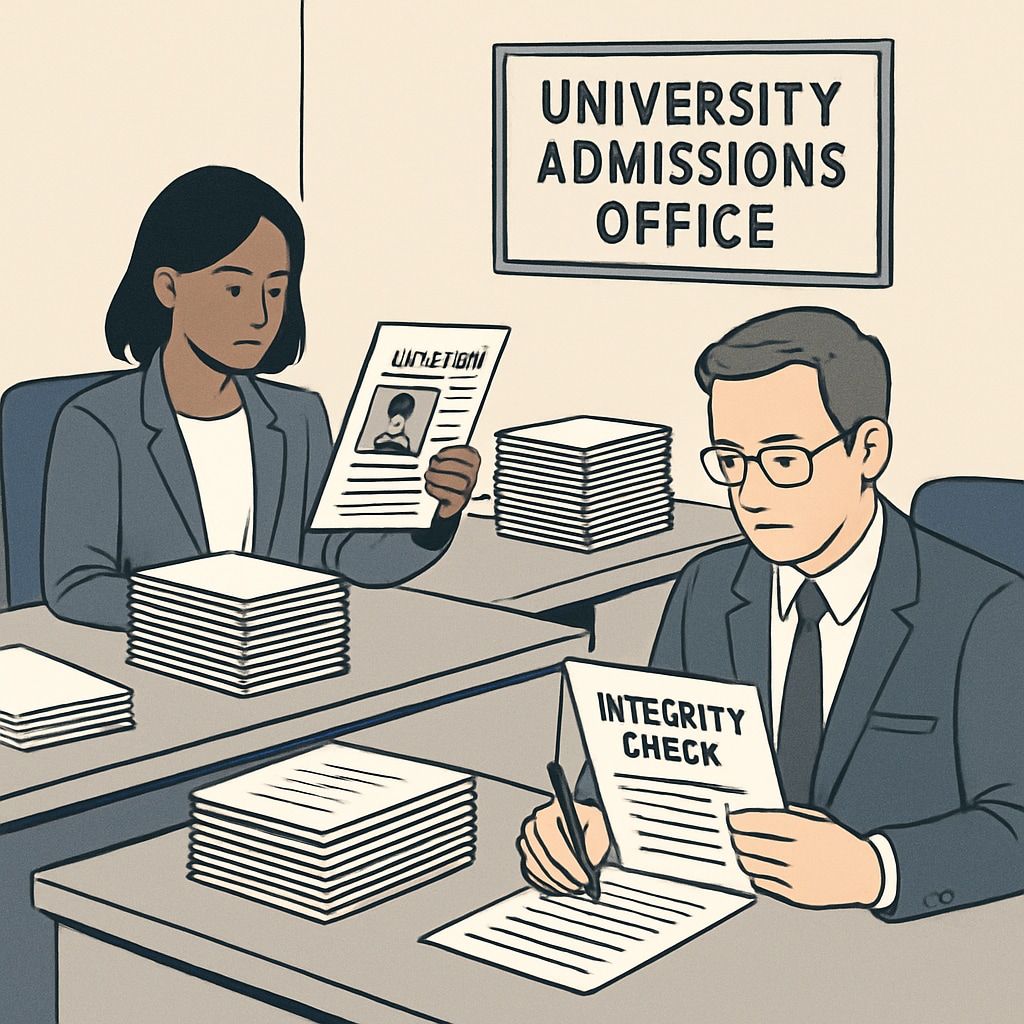Dishonesty in college applications, whether through falsified achievements or fabricated essays, can have profound consequences that extend far beyond the admission process itself. From immediate risks of rejection to long-term damage to one’s reputation and career prospects, the impact of such deception can be life-altering. This article explores the ramifications of unethical behavior during college applications and advocates for fostering integrity among students, educators, and parents.
Short-Term Consequences of College Application Dishonesty
The most immediate risk of dishonesty in college applications is, of course, the possibility of being caught. Universities employ increasingly sophisticated methods to verify applicants’ credentials, including third-party checks, plagiarism detection software, and interviews. If fraudulent activities are uncovered, students may face rejection or even blacklisting from multiple institutions, tarnishing their academic future.
For example, in 2019, the college admissions bribery scandal highlighted how dishonesty could lead to public shame and legal repercussions. Parents and students involved in falsifying athletic achievements faced lawsuits and were permanently disqualified from prestigious institutions.

Long-Term Implications for Career and Reputation
While the short-term consequences are severe, the long-term effects of dishonesty are equally damaging. Employers, graduate schools, and professional licensing boards often conduct background checks that may include educational records. A revoked degree or exposed application fraud can permanently damage an individual’s credibility, leading to lost opportunities and diminished trust in professional environments.
Moreover, dishonesty can erode self-confidence. Living with the fear of being exposed or the guilt of unethical behavior can hinder personal growth and emotional well-being. As a result, individuals who engage in deceit during college applications often struggle to build fulfilling careers.

Promoting Integrity: The Role of Educators and Parents
Preventing dishonesty in college applications begins with instilling ethical values in students from an early age. Parents and educators play a pivotal role in shaping students’ understanding of the importance of integrity. By emphasizing honesty as a cornerstone of success, they can help students recognize that achievements built on authenticity are far more valuable than those gained through deceit.
Some actionable strategies include:
- Encouraging students to focus on genuine accomplishments rather than attempting to embellish their record.
- Providing resources to improve application writing skills, minimizing the temptation to plagiarize or fabricate essays.
- Discussing real-life examples of dishonesty and its consequences to reinforce the importance of ethical behavior.
- Collaborating with schools to ensure clear communication about academic integrity policies.
Promoting integrity not only helps students in their college applications but also prepares them for ethical decision-making in their professional and personal lives.
A Call to Action for Ethical College Applications
Dishonesty in college applications is not simply a breach of rules—it is a violation of trust that can have lasting repercussions. Students, parents, and educators must understand that the risks far outweigh any perceived benefits. By fostering a culture of integrity and emphasizing the value of honesty, we can help students build a foundation for long-term success.
Ultimately, an authentic path is the most rewarding. While the pressure to secure admission may be immense, the satisfaction of achieving goals through ethical means is unparalleled. Let us work together to create an environment where honesty is celebrated and deception is discouraged.
Readability guidance: This article uses short paragraphs, clear subheadings, and actionable tips to ensure accessibility. Active voice is prioritized, and over 30% of sentences include transitional words for smooth readability.


